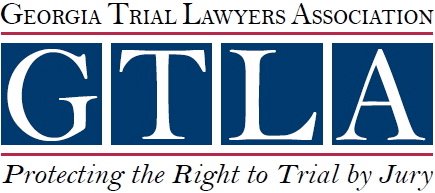Navigating the roads as a cyclist can be challenging, especially when sharing space with motor vehicles. In Georgia, bike accidents are not uncommon, and understanding the state’s legal landscape is crucial for anyone involved in such incidents. One key aspect of Georgia law that plays a significant role in bike accident cases is the concept of comparative fault. This principle can significantly influence the outcome of any legal proceedings following an accident, determining the compensation a victim might receive and the overall liability of the parties involved.




The Principle of Comparative Fault in Georgia
Comparative fault, also known as comparative negligence, is a legal doctrine used to allocate fault among parties involved in an accident. Georgia follows a modified comparative fault rule, which means that an injured party can recover damages only if they are less than 50% at fault for the accident. If a cyclist is found to be 50% or more responsible for the incident, they are barred from receiving any compensation. This rule underscores the importance of understanding the dynamics of fault in bike accident cases and ensuring that all contributing factors are thoroughly examined.
Under Georgia’s modified comparative fault system, the amount of compensation a plaintiff can receive is reduced by their percentage of fault. For instance, if a cyclist is awarded $100,000 in damages but is found to be 20% at fault for the accident, their compensation would be reduced by 20%, leaving them with $80,000. This reduction reflects the cyclist’s contribution to the accident and ensures a fair distribution of responsibility.
Applying Comparative Fault to Bike Accidents
Bike accidents can involve a variety of scenarios, each presenting unique challenges in determining fault. Common causes of bike accidents include driver negligence, hazardous road conditions, and cyclist behavior. Driver negligence might involve speeding, distracted driving, or failing to yield to cyclists. Hazardous road conditions can include poorly maintained roads, debris, or inadequate signage. Cyclist behavior, such as failing to obey traffic signals or riding against traffic, can also contribute to accidents.
When a bike accident occurs, it is crucial to investigate the circumstances thoroughly. This investigation often involves gathering evidence, such as police reports, witness statements, and surveillance footage. Understanding the roles of both the driver and the cyclist in the accident is essential in applying comparative fault accurately. For example, if a cyclist is struck by a car while running a red light, the cyclist’s actions would likely contribute significantly to the accident, potentially reducing their compensation. Conversely, if a driver hits a cyclist while texting and driving, the driver’s negligence would be the primary factor in determining fault.
Legal Process for Bike Accident Claims
Filing a bike accident claim in Georgia involves several steps, each requiring careful attention to detail. The first step is to seek medical attention and document all injuries sustained in the accident. Medical records serve as crucial evidence in establishing the extent of the injuries and their impact on the victim’s life. It is also essential to report the accident to the police and obtain a copy of the police report, which can provide valuable information about the incident.
Once the immediate aftermath of the accident is addressed, the next step is to consult with an attorney who focuses in bike accident cases. An experienced attorney can help navigate the complexities of Georgia’s comparative fault laws and ensure that all relevant evidence is gathered and presented effectively. This includes collecting witness statements, accident scene photographs, and any available video footage.
The attorney will then file a claim with the at-fault party’s insurance company, presenting the evidence and outlining the damages sought. These damages may include medical expenses, lost wages, pain and suffering, and property damage. The insurance company will investigate the claim and may attempt to negotiate a settlement. It is essential to have legal representation during this process to ensure that any settlement offer is fair and adequately compensates the victim for their losses.
If a settlement cannot be reached, the case may proceed to court. In court, both parties will present their evidence, and a judge or jury will determine the allocation of fault and the amount of compensation, if any, to be awarded. Throughout this process, the principles of comparative fault will play a critical role in the final outcome.
Challenges in Proving Fault in Bike Accidents
Proving fault in bike accidents can be particularly challenging due to the inherent biases that sometimes exist against cyclists. Some drivers and even law enforcement officers may have preconceived notions about cyclists’ behavior on the road, potentially influencing their perceptions of fault. Overcoming these biases requires a thorough and objective analysis of the evidence.
Accident reconstruction professionals may be called upon to provide detailed analyses of how the accident occurred. These professionals can examine factors such as the speed and trajectory of the vehicles involved, road conditions, and the actions of both the driver and the cyclist. Their findings can help establish a clear picture of the events leading up to the accident and determine the extent to which each party was at fault.
Eyewitness testimony can also be invaluable in proving fault. Witnesses who observed the accident can provide firsthand accounts of what happened, offering insights into the actions of both the driver and the cyclist. Ensuring that these witnesses are credible and their statements are consistent with other evidence is crucial in building a strong case.
Impact of Comparative Fault on Compensation
The impact of Georgia’s comparative fault laws on compensation can be significant. Understanding this impact is essential for any cyclist involved in an accident. In cases where the cyclist is found to be partially at fault, the reduction in compensation can affect their ability to cover medical expenses, lost wages, and other costs associated with the accident.
For example, consider a scenario where a cyclist incurs $50,000 in medical expenses and $20,000 in lost wages due to an accident. If the cyclist is found to be 30% at fault, their compensation would be reduced by 30%, leaving them with $49,000 instead of the full $70,000. This reduction can place a substantial financial burden on the cyclist, highlighting the importance of minimizing the assigned fault percentage through effective legal representation and a thorough investigation of the accident.
Hiring a Personal Injury Attorney How Long Will a Personal Injury Case Take?Related Videos
Preventive Measures and Legal Recourse
While understanding comparative fault is essential, preventing bike accidents should always be a priority. Both cyclists and drivers can take steps to enhance safety and reduce the likelihood of accidents. Cyclists should adhere to traffic laws, use appropriate safety gear, and remain vigilant when navigating the roads. Drivers should be aware of cyclists, provide ample space when passing, and avoid distractions while driving.
In the event of an accident, knowing one’s legal rights and recourse is crucial. Consulting with an attorney immediately after an accident can help protect those rights and ensure that all necessary steps are taken to build a strong case. An attorney can provide guidance on gathering evidence, dealing with insurance companies, and understanding the intricacies of comparative fault laws.
Representative Cases
Fighting for Justice
If you or a loved one has been involved in a bike accident in Georgia, understanding your legal options and the implications of comparative fault is vital. The legal team at Princenthal, May & Wilson, LLC is here to help. With extensive experience in handling bike accident cases, we are committed to ensuring that our clients receive the compensation they deserve. Our dedicated attorneys will work tirelessly to investigate your case, gather the necessary evidence, and advocate on your behalf. Don’t navigate this challenging process alone. Contact Princenthal, May & Wilson, LLC today for a consultation and let us help you achieve the best possible outcome for your case. Your rights and recovery are our priority.





